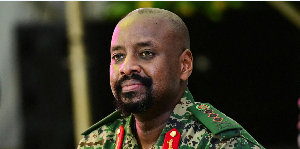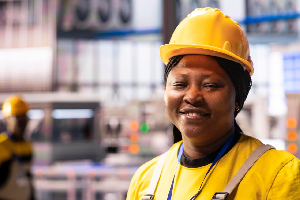The trending and sensational news thus far has been the Joy FM’s Online news about the United Kingdom’s pragmatic decision to stop funding President Mahama and his government’s projects and programs (See: ‘UK joins European Union to cut aid to Ghana’; myjoyonline.com/ghanaweb.com, 07/10/2016).
“The UK High Commissioner to Ghana Jon Benjamin tells JOYBUSINESS the decision was mainly due to Ghana’s new status as a Low Middle-Income country”.
Really? If that was the case, since when has Ghana been enjoying the Low Middle-Income status?
In fact, if my memory serves me right, it was former President Kufuor who moved Ghana from HIPC (the Highly Indebted Poor Country) to a Low Middle-Income status.
"President Mahama has said himself in New York that what African countries need is not more aid but trade because ultimately, it is the trade that creates the jobs and the spaces," the British High Commissioner explained.
There you go. I thought as much. It was rather President Mahama who requested his Western counterparts to cease forwarding any aid to Ghana during the 71st UN General Assembly in New York.
“The disclosure is coming after a similar move by the European Union where its head of delegation, William Hannah told JOYBUSINESS that the Union now wants to focus on more sector-specific programs”.
We can’t fault the United Kingdom and European Union for demitting their aid commitments to President Mahama and his government. For, he has gotten what he had wished for.
I, for one, buried my head in shame when President Mahama goofed terribly over his recent UN speech on democracy (See: ‘Full Text of President Mahama’s UN Speech-cityfmonline.com/ghanaweb.com, 21/09/2016).
Read excerpts of President Mahama’s pleonasm: “Democracy is not a one size fits all system. Different countries are at different stages of the democratic journey. Democracy evolves and cannot be forced. It doesn't help for bigger powers to go proselytizing democracy. It can have its negative consequences as we are experiencing in parts of North Africa and the Middle East. But still a properly functioning peer system can avoid some of the melt downs we are experiencing in some African countries due to the desire to remain in office interminably”.
“Human progress is not a seamless movement forward. It encompasses periods of reversal, mistakes, fumbling and falling. All parts of the world have been through this, learnt from their mistakes, picked themselves up after a fall and continued moving. Africa must be allowed the same latitude.”
Indeed, such prolixity was embarrassing and somehow made nonsense of Ghana’s ‘Non-Alignment Movement’ membership.
President Mahama’s democratic governance speech came after the recent United Nations resolutions 19/36 and 28/14 on “Human rights, democracy and the rule of law” (UN 2016).
In 2011, for instance, the UNDP assisted more than 130 countries and devoted US$1.5 billion in resources to democratic governance, making UNDP the world's largest provider of democratic governance assistance. UNDP supports one in three parliaments in the developing world and an election every two weeks (UN 2016).
In 2014, UNDP programme strengthened electoral processes around the world and helped register 18 million new voters. UNDP also works to foster partnerships and share ways to promote participation, accountability and effectiveness at all levels, aiming to build effective and capable states that are accountable and transparent, inclusive and responsive — from elections to participation of women and the poor (UN 2016).
In March 2012, the Human Rights Council adopted a resolution titled “Human rights, democracy and the rule of law,” which reaffirmed that democracy, development and respect for all human rights and fundamental freedoms were interdependent and mutually reinforcing. The Council however reminded States to make continuous efforts to strengthen the rule of law and promote democracy through a wide range of measures.
In furtherance to this resolution, OHCHR, in consultation with States, national human rights institutions, civil society, relevant intergovernmental bodies and international organizations, published a study on challenges, lessons learned and best practices in securing democracy and the rule of law from a human rights perspective.
Based on the study, in June 2013 OHCHR organised a panel discussion on these issues, with the participation of international experts.
Besides, in March 2015, the Human Rights Council adopted resolution 28/14, which established a forum on human rights, democracy and the rule of law, to provide a platform for promoting dialogue and cooperation on issues pertaining to these areas.
OHCHR also works to underline the close relationship between human rights and democracy within the United Nations system.
It must also be noted that the idea of development through equity and justice was captured in the United Nations Charter (UN 1945).
More importantly, some sections of the preamble to the Charter place emphasis on the promotion of social progress and better standards of life in larger freedom.
The preamble again stresses on the application of international machinery for the promotion of the economic and social development of all peoples (UN 1945).
Thus, Article (55) of the Charter addresses the need to promote higher standards of living, full employment, and conditions of economic and social progress and development, with a view to fostering stability and well-being (UN 1945).
Furthermore, the right to development is detailed in articles (22-28) of the universal declaration of human rights (UN1948), and both articles (1) of the two international covenants- civil and political rights and economic, social and cultural rights (UN 1966).
The 1968 Tehran world conference further emphasises the need for the right to development (UN 1968). Article (12) of the 1968 Tehran Proclamation for instance, stresses on the gargantuan chasm between the developed and the developing countries, which makes it impossible to realise human rights in the international arena.
Thus Article (13) of Tehran Proclamation stresses that “since human rights and fundamental freedoms are indivisible, the full realization of civil and political rights without the enjoyment of economic, social and cultural rights is impossible” (UN 1968).
What’s more, the Tehran proclamation acknowledges that the realisation of civil and political rights may not be feasible without the realisation of economic, social and cultural rights. Indeed, such assertion reinforces the indivisibility and interdependence of human rights and democracy.
In other words, per the right to development, development is shifting from the conventional approach to human rights approach whereby the focus is on equity and social justice (Mansell and Scot 1994).
It was against that background that the international community agreed to work synergistically to assist the underdeveloped nations in line with the provisions of the UN Declaration of the Right to Development.
Thus far there have been concerted efforts by the international community to concretise the Right to Development by implementing the eight Millennium Development Goals with a view to developing a global partnership for development (Alston 2005).
Apparently, the MDGS came to an end at the end of 2015 and replaced with the Sustainable Development Goals (SDGs). Under the Sustainable Development Goals, every country would be obliged to meet the targets set therein (UN 2015).
It is against the preceding global project that every patriot and proponent of democratic governance and human rights must be extremely worried over President Mahama’s unmeasured speech at the UN 71st General Assembly in New York.
K. Badu, UK.
*Please visit my blog at: www.alljoycom.wordpress.com
References:
Alston, P. (2005), “Ships Passing in the Night: The Current State of the Human Rights and Development Debate Seen through the Lens of the Millennium Development Goals”
Mansell, W. and Scot, J. (1994), “Why Bother about a Right to Development?”
United Nations (1945), The Charter of United Nations (Online) Available: www.un.org
United Nations (1948), The Universal Declaration of Human Rights (Online) Available: www.un.org
United Nations (1966), The International Covenant on Economic, Social and Cultural Rights (Online) Available: www.un.org
United Nations (1966), The International Covenant on Civil and Political Rights (Online) Available: www.un.org
United Nations (1968), The Tehran Proclamation (Online) Available: www.un.org
United Nations (1986), The Declaration on the Right to Development (Online) Available: www.un.org
United Nations (2015), The Sustainable Development Goals (Online) Available: www.sustainabledevelopment.un.org
Opinions of Sunday, 9 October 2016
Columnist: Badu, K














